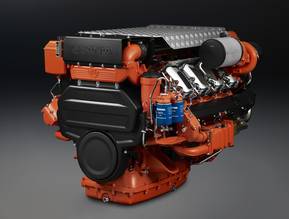After a nationwide blackout, power is beginning to return to Venezuela
On Friday afternoon, power began to be restored in some areas of Venezuela after the capital Caracas as well as much of the rest the country had been plunged into an earlier blackout. The government blamed the opposition for the blackout without providing any evidence.
The President Nicolas Maduro is in a dispute over the results of the presidential elections on July 28, and he often accuses his political opponents of "attacks" against the power grid. This is something the opposition has never accepted.
Freddy Nanez said that all 24 states in the country reported total or partial losses of electricity, on state TV early Friday morning.
He said, "We are once again victims of electrical sabotage." He did not provide any evidence that the attack was deliberate.
Witnesses report that power was restored to certain parts of the western city Maracaibo and central city Valencia by 1pm local time (1600 GMT) as well as to Puerto Ordaz, located in the east, and Caracas capital at around 1pm local.
On Friday morning, Diosdado Cabelle, the Interior Minister, told state television that power will be restored gradually and begin with the capital.
According to sources, and according to a document viewed by us, the blackout affected some operations at state oil company PDVSA. This included its largest terminal Jose, where vessel discharging and loading was disrupted by the outage. Petropiar is a key oil refinery that produces exportable crude and was also affected.
Jose is responsible for 70% of Venezuelan oil exports, but it does not have a power system. Petropiar is the main source of crude oil exports from Venezuela by U.S. company Chevron.
Sources said that PDVSA's Caracas HQ lost power, but its largest refinery complex Paraguana remained unaffected as it had its own power station in operation.
Sources said that the impact of blackouts in Venezuela's Orinoco Belt region was minimal, as many oilfields have their own generators.
QUICK REACTION
Residents of Barquisimeto in western Mexico were stocking up with gasoline and food.
Alexa Rivas (29), a lawyer, avoided the five-kilometer (3-mile) long lines she claimed to have encountered at urban gas stations. She drove to a service center outside of the city.
She said, "I cannot be without gas, I have a 3 year-old son and my mother is 70. I need reserves for any emergencies." "We've experienced two blackouts nationwide, and it makes us nervous."
Venezuela suffered its last national blackouts as recently as 2019, some lasting up to three days. The authorities also attributed these power outages to attacks by opponents and saboteurs on the network, such as damaging power lines.
Power cuts have been blamed by critics for years on the deteriorating infrastructure in the face of fiscal problems. On Friday, Juan Pablo Guanipa, a major opposition figure in Chile's government, laughed off the accusations of sabotage.
Guanipa, referring the loyalists to the socialist ruling party, said that even the most radical Chavistas don't believe this narrative.
Workers in Caracas gathered in the Plaza Venezuela area of the city in the early morning to await instructions from their bosses on whether or not they should go home.
Alejandro Rondon said that the card payment machine in his bakery was still functional and he sold what he had.
We can't bake anything today, because the ovens don't work. "I'm worried about the yeast because it needs to be chilled," he said.
Ramon Velasquez, the Transport Minister, said that services on the metro had been halted. More than 250 buses have replaced them. The health ministry reported that 79 public hospitals are open for patients.
Both the Venezuelan government and opposition claim that their candidate won the election last month, and both the Supreme Court and electoral authority back Maduro. The authorities haven't released the full results of last month's election despite international pressure.
Over the past week, arrests of opposition leaders have increased dramatically.
(source: Reuters)





